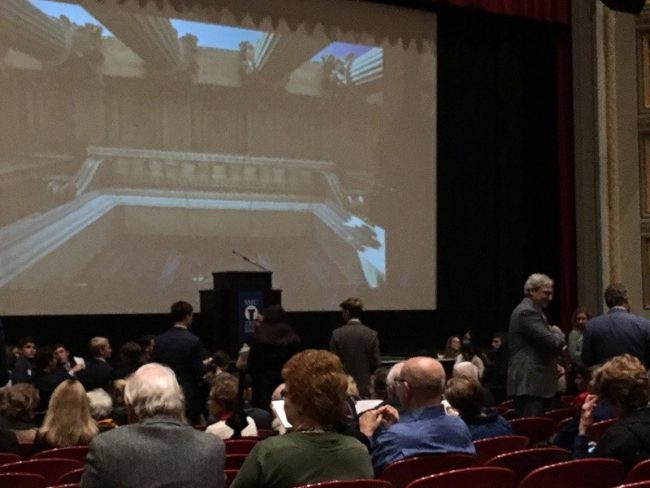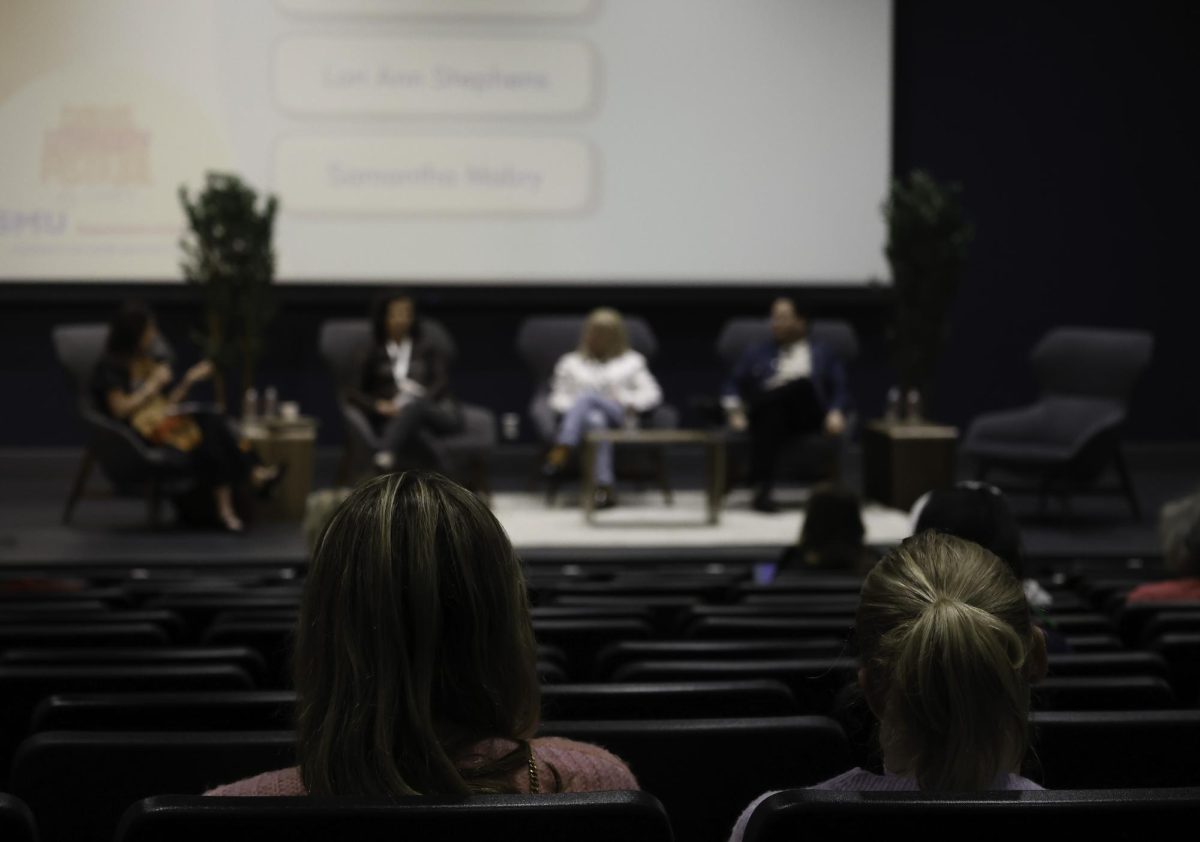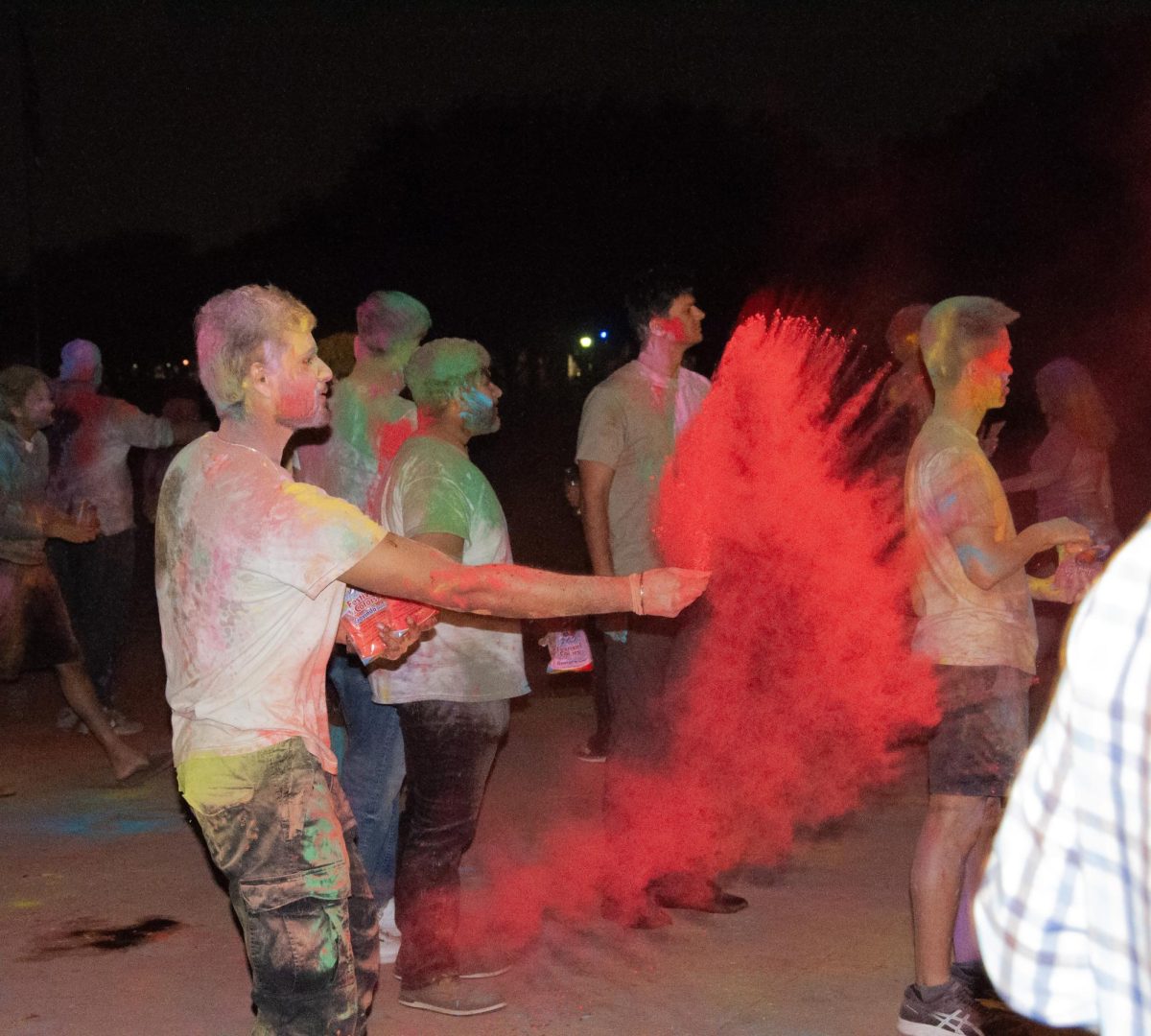“There’s a vanishingly small middle ground,” Jon Meacham said in his opening remarks for the evening.
At first, his statement might seem alarming for the Tate Lecture Series which typically invites more esoteric lecturers, but it was actually spot on. Meacham was not present to give a peachy account of the current political climate, but he did continuously offer reassurance and jokes over the course of the evening. However, it all revolved around the idea of “we’ve been here before” and “we’ve come out the other side.” As a presidential historian, very few men may have the historical training necessary to deliver that type of lecture, but Meacham did so with poise and confidence in his message.
“We have to seek out that middle ground,” Meacham reiterated.
His plan is not extravagant, nor is it outlandish in any way. Many Americans constantly rail the polarization of American politics and lament the degree to which the middle ground goes unheard. However, it is that middle ground that Meacham cites as necessary to pull out of our current position.
To rediscover the past, we must do two things: not close out the past and honor where we have come from. By doing both, we allow ourselves to learn the lessons of the past and we respect those who have made sacrifices to preserve our country.
Over the course of the evening, Meacham offered three examples of past instances where we have experienced a largely divided United States: Thomas Jefferson’s Revolution of 1800, the 1920s, and McCarthyism. Each of these three examples was equally divisive in their own time, and we emerged from each of them more unified and resilient than before.
Jefferson’s Revolution of 1800 was focused on reforming America into the Jeffersonian view of how the young republic should be. Jefferson wanted to revert back to a more agrarian society and return to the patriotic roots that had made revolutionary America so great in his mind.
The 1920s brought the divisive ideologies of Soviet Bolshevism and rising European fascism into conflict in the United States. In states like New York with large populations of unionized workers, there were numerous arrests made under suspicion of communist sympathies. This was done under the guise of a fierce nationalism that sought to preserve the American identity by preventing immigration and jailing communists.
The McCarthyism from 1950-1954 brought about the divides of the Cold War and the willingness of the people to turn their back on many innocent Americans who were accused of being communist sympathizers. It gave a greater role to the House Un-American Activities Committee (HUAC) and resulted in numerous televised trials of Americans from all backgrounds.
The history of the United States, according to Meacham is “a couple of steps forward, one step back.”
In examining all of the examples, this can be seen as true. The Revolution of 1800 was predated by the American Revolution. The 1920s were filled with progressive labor laws and suffrage for women across the country. McCarthyism came at the same time Harry Truman was integrating the Armed Forces and implementing the Marshall Plan.
Just because we make progress and regress is not a cause for alarm. Meacham highlighted the values of curiosity, humility, and empathy as being important for any future successes. Once again, he highlighted different instances where American leaders embodied these values and used them for significant change.
“Don’t let some network tell you what to think,” Meacham firmly stated in closing to an evening that was as much about nonpartisanship, as it was offering remedies to the increased partisanship in the United States.















